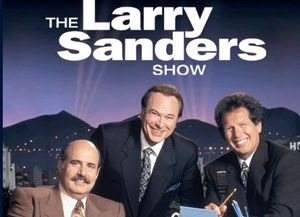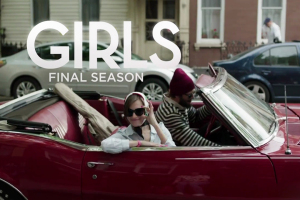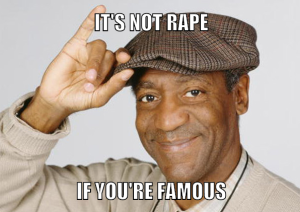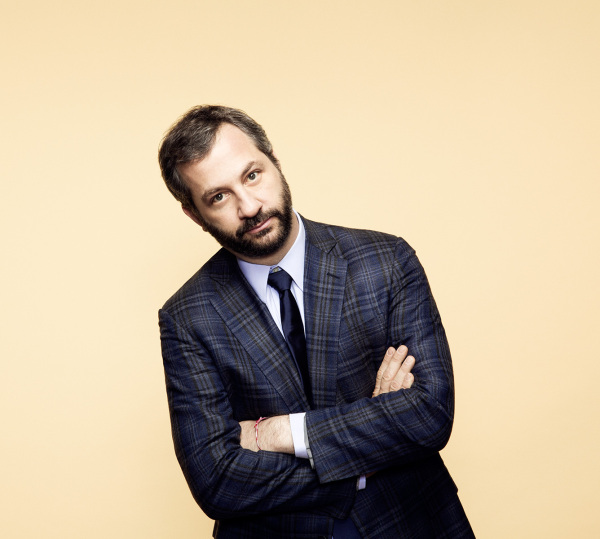EDITOR’S NOTE: This week we will be re-posting choice Q&As from the past year. Today we present this reprise edition of this in-depth interview with Judd Apatow, which originally posted on February 17th, 2017. Enjoy.
![]() BY JONATHAN VALANIA By this point, everyone knows who Judd Apatow is, or at least everyone who’s had even a glancing interface with a cineplex marquee or has a non-delinquent cable account and a functioning funny bone. With writing, producing, directing or acting credits in nearly 40 films and 24 television shows, Mr. Apatow has become the Starbucks of comedy — dark-roasted, fairly-traded, consistently reliable, and blessedly ubiquitous. I had the distinct pleasure of speaking with Mr. Apatow last Friday when he was in town for The Crashing Comedy Tour‘s stop at the Trocadero to promote his new show Crashing, [which kicks off its second season on January 18th]. DISCUSSED: Being the Starbucks of comedy, his Gary Shandling documentary, The Larry Sanders Show, Crashing, Love, working for Netflix, Dwight Gooden, Daryl Strawberry, Lena Dunham, the end of Girls, Artie Lange, Sarah Silverman, T.J. Miller, Bill Cosby, and how to survive The Age Of Trump without gaining 30 pounds and losing your mind.
BY JONATHAN VALANIA By this point, everyone knows who Judd Apatow is, or at least everyone who’s had even a glancing interface with a cineplex marquee or has a non-delinquent cable account and a functioning funny bone. With writing, producing, directing or acting credits in nearly 40 films and 24 television shows, Mr. Apatow has become the Starbucks of comedy — dark-roasted, fairly-traded, consistently reliable, and blessedly ubiquitous. I had the distinct pleasure of speaking with Mr. Apatow last Friday when he was in town for The Crashing Comedy Tour‘s stop at the Trocadero to promote his new show Crashing, [which kicks off its second season on January 18th]. DISCUSSED: Being the Starbucks of comedy, his Gary Shandling documentary, The Larry Sanders Show, Crashing, Love, working for Netflix, Dwight Gooden, Daryl Strawberry, Lena Dunham, the end of Girls, Artie Lange, Sarah Silverman, T.J. Miller, Bill Cosby, and how to survive The Age Of Trump without gaining 30 pounds and losing your mind.
PHAWKER: I don’t need to read your resume back to you, but you know and I know that you are incredibly prolific. Nearly 40 films and two dozen TV shows that you either wrote or produced or directed or acted in. You’re sort of like the Starbucks of comedy — you can’t go more than a block or two without running into a Judd Apatow joint, and I don’t mean that as a diss. I think Starbucks is a fine brand and I’m very thankful to see them when I pull off the highway in the middle of nowhere. But anyways, getting back to my question, which is basically, how do you juggle all of this? It’s just exhausting to read your CV. What’s the typical day in the life of Judd Apatow?
JUDD APATOW: Well, I think a lot of it is about building a team. You know, when you work  on a TV show you are working with a group of people and if you have a strong writer and strong leaders and staff, then I’m able to spend time breaking stories, reading scripts and looking at edits. I don’t like to spend a ton of time on sets, I try to hire great directors and not interfere, and then, in editing, watch what they did. If they miss something we might try to re-shoot something at some point, which rarely happens, and be about making sure we close strong. And so, I’m able to jump between shows. I’ll say “why don’t you guys take a run at an outline” and they’ll write the outline and I’ll read the outline, and then I’ll give notes and say “here’s my notes, read and rewrite it” and I’ll come back again, so I can pop around. But with each show I’m helpful in different ways, some shows, like Crashing, I thought directing would be helpful just to set a style. On Love, for Netflix, you know, we’ve hired all these incredible independent film directors like Joe Swanberg, Michael Showalter and Lynn Shelton, so I focus more on the scripts.
on a TV show you are working with a group of people and if you have a strong writer and strong leaders and staff, then I’m able to spend time breaking stories, reading scripts and looking at edits. I don’t like to spend a ton of time on sets, I try to hire great directors and not interfere, and then, in editing, watch what they did. If they miss something we might try to re-shoot something at some point, which rarely happens, and be about making sure we close strong. And so, I’m able to jump between shows. I’ll say “why don’t you guys take a run at an outline” and they’ll write the outline and I’ll read the outline, and then I’ll give notes and say “here’s my notes, read and rewrite it” and I’ll come back again, so I can pop around. But with each show I’m helpful in different ways, some shows, like Crashing, I thought directing would be helpful just to set a style. On Love, for Netflix, you know, we’ve hired all these incredible independent film directors like Joe Swanberg, Michael Showalter and Lynn Shelton, so I focus more on the scripts.
PHAWKER: But do you set specific working hours? Like “I’m up at 8 and I’m done at 6”?
JUDD APATOW: Yeah I mean, I drop my daughter off at school at 8 o’clock then I try to be home by 5-5:30 everyday. And then if a couple of nights a week I try to do stand-up or something like that, and every once in a while it completely collapses but that’s what the goal is.
PHAWKER: And do you really work in a high-rise building that says JUDD APATOW’S OFFICE in big letters on the side like in Maria Bamford’s imagination?
JUDD APATOW: We have a small building where we do  everything. I only have about eight employees that work for me. But I’m usually editing one of the TV shows in my office as well, but we keep it pretty lean for the most part. I get confused if there are too many people around.
everything. I only have about eight employees that work for me. But I’m usually editing one of the TV shows in my office as well, but we keep it pretty lean for the most part. I get confused if there are too many people around.
PHAWKER: We’ll get to Crashing in a second, I have a couple preliminary questions I wanted to hit you with first. I hear you’re working on a Gary Shandling documentary. I love Gary Shandling, can you tell me something about Gary Shandling that most people don’t know, or wouldn’t expect?
JUDD APATOW: Well, Gary was a very spiritual person so in addition to the comic evolution he went through he was also very interested in Buddhism and Eastern religion and he combined those ideas with his approach to his writing. He talks a lot about getting to the truth of things, letting go of your ego so you could really be yourself and find out who you are, and that’s what The Larry Sanders Show was all about. It was about people whose egos got in the way. He used to say “people love each other, but show business gets in the way” and he lived a very interesting life. I love making documentaries. My friend Michael Bonfiglio and I made a documentary about Dwight Gooden and Darryl Strawberry for 30 for 30, and we have another one coming out at South By Southwest about this band, The Avett Brothers, and we followed them while they recorded their new album with Rick Rubin.
PHAWKER: Oh wow.
JUDD APATOW: And that will be premiering in March. Yeah, so, I like Gary, I like to get closer and closer to the truth, so documentary is very interesting to me.
PHAWKER: Last question on The Larry Sanders Show, which you wrote for. The show portrayed show business as this viper’s den of weaponized narcissism and crippling insecurities and psychological warfare, is that still a fair assessment of the industry?
JUDD APATOW: Well, you know, show business is driven by making money, and when you make people a lot of money they like you, and when you make people less money they like you less. And then everybody feels this need to be accepted but there is a natural decay to anyone’s career. Sometimes fast, sometimes slow, but usually painful, and it’s a very interesting world. You know, if you make a living and a ton of money then your phone rings. My wife and I always laugh about how one Christmas when I had a very successful year I got a lot of Christmas presents from a lot of different people and then this year, at Christmas, I got like one present: my air conditioner guy dropped off a bottle of wine. You know, it’s all ups and downs.
PHAWKER: Final season of Girls. Any thoughts on putting a period on the end of that show?
JUDD APATOW: Well it’s fun to try to land the ship, you know with The Larry Sanders Show we had a year or two to talk about what the conclusion of the story would be. So it was very exciting to try and decide the final spot where you would leave all of them because some of them had matured, some of them haven’t at all; some relationships are thriving some are falling apart, and I’m really happy with how it ends. I think it’s very surprising and very strong.
PHAWKER: And have you and Lena Dunham talked about doing something new going forward?
JUDD APATOW: Lena, Jenni and I would like to do something else, we just get along very well and creatively that’s so rare. But it all depends on the idea. You can’t force it unless you have an idea you are just as enthusiastic about. I’m sure we are going to talk plenty about it.
PHAWKER: Ok, let’s dig into Crashing here, which is ostensibly the reason we are speaking on the phone today. I’ve seen a few snippets but I’ve not actually seen a full episode, for the benefit of readers who have seen none of this, can you explain the premise of the show?
 JUDD APATOW: Well, the premise is about a guy whose wife cheats on him and he has dabbled in stand-up comedy but now he has decided to move to New York City and give it a shot. The other interesting part about it is he is very religious, and so a lot of this show is just this person trying to not lose his soul in the dark world of comedy. And it’s about young comedians, it’s about people who aren’t good yet, and how hard it is to survive when you haven’t figured out how to do it. Stand-up comedy is one of the only professions that you learn on your feet. You have to fail in front of crowds to learn and get better.
JUDD APATOW: Well, the premise is about a guy whose wife cheats on him and he has dabbled in stand-up comedy but now he has decided to move to New York City and give it a shot. The other interesting part about it is he is very religious, and so a lot of this show is just this person trying to not lose his soul in the dark world of comedy. And it’s about young comedians, it’s about people who aren’t good yet, and how hard it is to survive when you haven’t figured out how to do it. Stand-up comedy is one of the only professions that you learn on your feet. You have to fail in front of crowds to learn and get better.
PHAWKER: And comedian Pete Holmes is the star, and it’s roughly based on his life experiences, is my understanding. Is this accurate?
JUDD APATOW: Well, that’s the seed of inspiration, and, you know, it goes its own way. But when he was first starting out he slept on a lot of comedian’s couches because he couldn’t afford an apartment, and he was from Chicago and there were a lot of great comedians when he started out like John Mulaney and Hannibal Buress and Kumail Nanjiani, and that’s what happens here. He sleeps on Artie Lange’s couch for a few days and he sleeps on Sarah Silverman’s couch for a few days then T.J. Miller, so in addition to seeing his world we see their world. It’s kind of like he is stepping into other people’s shows??.
PHAWKER: I love Artie Lange, I worry about him, in fact every night I say a prayer for him and I’m not even religious. How is Artie doing these days? I know you are out on the road with him right now. [EDITOR’S NOTE: You can read our 2014 interview with Artie Lange HERE.]
JUDD APATOW: Working with Artie has been great, he hadn’t acted in 14 years when he did the show, and he really is a brilliant actor. He is able to play himself and be honest about his life and his struggles while also being funny and this is a unique opportunity to hear what he thinks about all of this, and we had a great time. We laugh about how reliable he was. We keep telling him he going to get a reputation of a reliable person if he doesn’t watch himself.
PHAWKER: You have been a very vocal critic of Bill Cosby who is on trial for sexual assault right now, right here in my backyard, in Philadelphia. Two questions about that: how do you think that is going to play out?
JUDD APATOW: Well, you know, I mean, because I think what is most important is that all of these women were hurt, and just the fact that it is going to trial, and all the evidence hopefully will come out is a very big victory for all of his accusers. He hurt a lot of people and these are the type of injuries that affect people for the rest of their lives. You don’t heal quickly from this kind of assault. And I’ve met a lot of the people who are survivors of [sexual assault], and you can see it, in one second, what it did to them. It’s sad because he’s such a brilliant artist but very sick, who hurt enormous amount of people — we’ll never know how many. I just feel for the people who were hurt that them speaking up will lead to more people speaking up about this kind of crime because if we don’t listen to people they won’t come forward.
PHAWKER: Knowing what we know about him, how do we deal with his body of work then? Can we still laugh at Fat Albert?
JUDD APATOW: I personally don’t care too much about the issue. I think it’s weird for [TV networks to broadcast re-runs of his work] like none of this happened, but I don’t feel militant about it. I can’t listen to it or watch it without knowing the mind of the person who created it, so it spoils it for me. And when you re-listen to those comedy albums there are a lot of ideas in there that make sense now. You notice how many of the pieces are about some hostility towards his wife or his family, or feeling like he was in a cage and wanting to do what he wanted to do. I mean he has a lot of routines about Spanish Fly.
PHAWKER: Literally, I know. His M.O. with his victims was an early stand-up bit.
JUDD APATOW: There are a lot of dark bits about getting in physical fights with your wife and chasing your wife, but people can still listen to it and separate it. People can do whatever they want to do, as long as we take the time to hear from the people wh o he victimized.
o he victimized.
PHAWKER: Two quick questions about Donald Trump. First of all, how are you coping with the onset of the Age of Trump, and are you at all concerned, considering that you’ve been a very vocal and public critic of him, are you at all concerned about any personal blowback or career repercussions? Are you expecting to have your taxes audited?
JUDD APATOW: I just think there are certain moments in history when we are supposed to speak up. And so I wouldn’t know how to not speak up in this moment. That would feel wrong, and there’s not much more to it than that. There are a lot of things happening that are clearly wrong, a lot of things which are clearly illegal, and people need to make some noise, we need to let senators and congressman know that if you support him when he does these things, you know, such as fighting for a travel ban which is clearly against our Constitution, then we are all going to vote you out at the midterm, or the next election. That’s the only thing that is going to change this, is the legislature realizing that they’re all going to lose their jobs for not saying “I agree with some of what Trump believes but he is doing a lot of things that are clearly against what this country stands for.”
PHAWKER: Did you see the videos from the Chaffetz’s Town Hall last night?
JUDD APATOW: Yeah.
PHAWKER: Oh my God, they were vicious, beating all his fraudulent denials and evasions of the truth into the ground. It was beautiful. The woman dying of cancer who depends on Planned Parenthood for treatment asking why he is taking that away from her? Or the little girl asking ‘Do you believe in science? Because I do.’ Ka-boom!
JUDD APATOW: I did. Things only change when these politicians get scared for themselves. Most politicians are very selfish and they are only interested in their careers so they don’t want to go against the Republican Party but there is an enormous amount of Congressman and  Senators that are terrified right now. [Trump is a very unstable] person dealing with some very complicated domestic and international issues, but how many bizarre things can happen per day? We are all getting numb to it. It is certainly scary times and we all need to fight for what we think is right, whatever that is for each person.
Senators that are terrified right now. [Trump is a very unstable] person dealing with some very complicated domestic and international issues, but how many bizarre things can happen per day? We are all getting numb to it. It is certainly scary times and we all need to fight for what we think is right, whatever that is for each person.
PHAWKER: Last question: As a comedian, what do you make of the fact that he cracks jokes, but I’ve never ever seen him laugh at anybody else’s jokes, or laugh ever.
JUDD APATOW: Well, if you had a bunch of friends and one of them didn’t laugh I wonder what your opinion would be of him. I mean, people who don’t laugh are troubling. Laughing is how we connect, it’s how we say ‘I understand.’ It’s how we say ‘I care about you. I love you.’ It’s how we say ‘What you are telling me is important to me.’ So someone that never laughs — unless it’s chuckling about how you hurt somebody — it scares me. I don’t think it’s normal.
PHAWKER: Very good. Listen sir, thank you very much. That was a great interview, thank for giving me all this time, thanks for all the great stuff you’ve done over the years. I look forward to what’s coming next.
JUDD APATOW: All right, thank you. I look forward to reading it.

